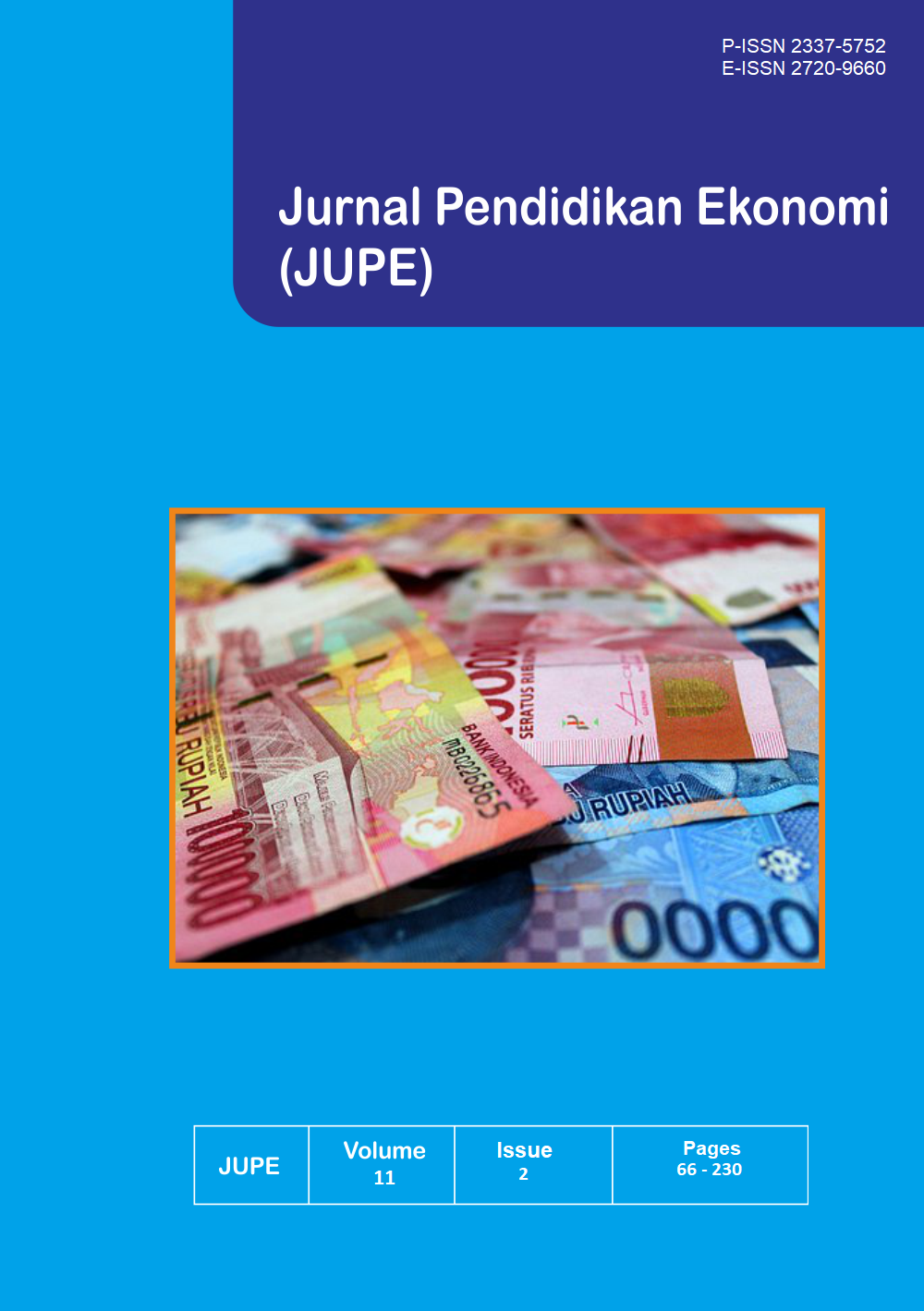Pengaruh Money Attitude, Financial Knowledge Dan Financial Self Efficacy, Terhadap Financial Management Behavior Mahasiswa S-1 Universitas Sebelas Maret
DOI:
https://doi.org/10.26740/jupe.v11n2.p193-201Keywords:
Money attitude, Financial knowledge, Financial management behavior.Abstract
This study aimed to examine the effect of money attitude, financial knowledge, and financial self-efficacy on financial management behavior of undergraduate students of Sebelas Maret University. This research was a quantitative descriptive study with 395 respondents as research subjects. They were undergraduate students of Sebelas Maret University. The sampling technique was carried out using a probability sampling technique with a proportionate stratified random sampling. Data was collected through a questionnaire distributed via the Google form link. The data validity test employed the CFA technique. The data analysis used multiple regression analysis. The results obtained were as follows. First, money attitude had a positive and significant effect on the financial management behavior of undergraduate students. Second, financial knowledge had a positive and significant effect on the financial management behavior of undergraduate students.Third, financial Self Efficacy had a positive and significant effect on the financial management behavior of undergraduate student.
Downloads
Downloads
Published
How to Cite
Issue
Section
License
Copyright
- Authors retain copyright and grant the journal right of first publication with the work simultaneously licensed under a Creative Commons Attribution License that allows others to share the work with an acknowledgment of the work's authorship and initial publication in this journal.
 Abstract views: 518
,
Abstract views: 518
, PDF Downloads: 499
PDF Downloads: 499











